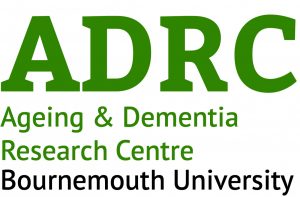Centre for Wellbeing & Long-Term Health
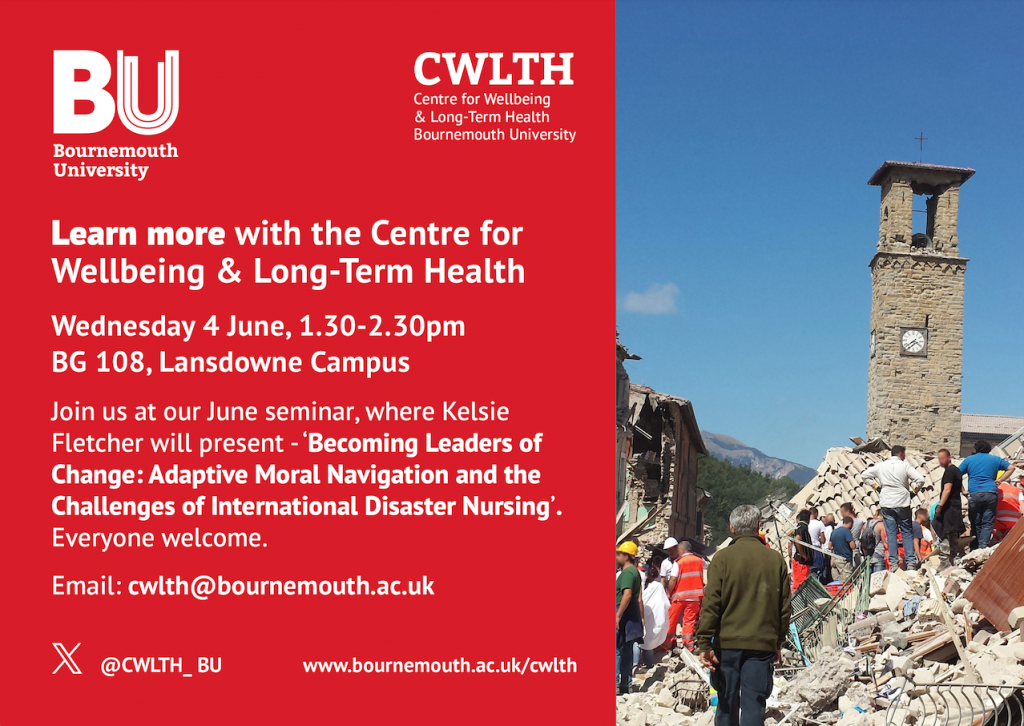
Centre for Seldom Heard Voices
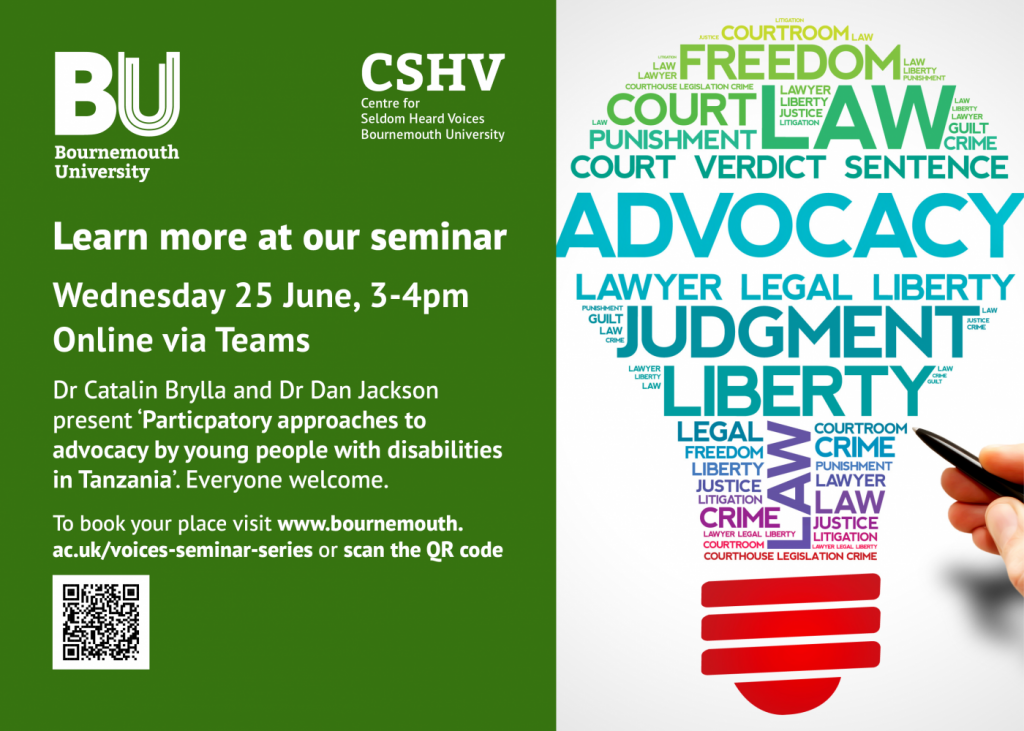
Centre for Midwifery & Women’s Health
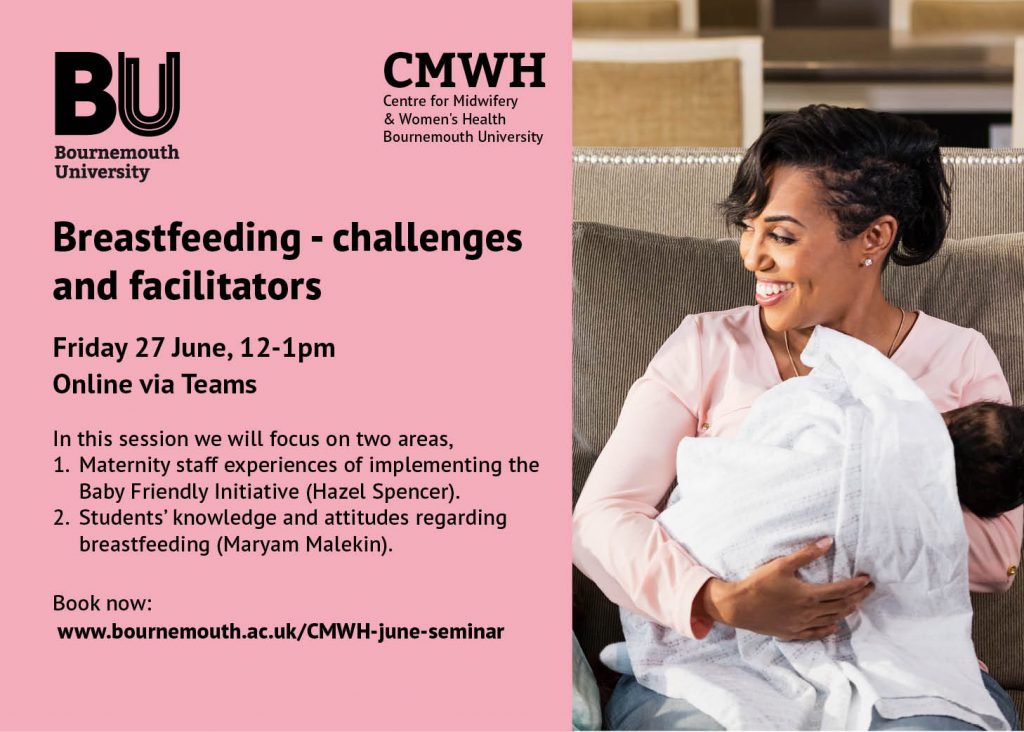
Latest research and knowledge exchange news at Bournemouth University
Centre for Wellbeing & Long-Term Health

Centre for Seldom Heard Voices

Centre for Midwifery & Women’s Health

It’s Not Too Late to Get Involved in Being Human Festival 2025
If you’re still thinking about taking part in Being Human Festival 2025 by organising a public engagement event, activity or project, there’s still time to apply. The deadline for the Festival Event (unfunded) pathway is 5:00 PM on Friday 4 July.
This year’s festival will take place from 6 to 15 November, with the theme Between the Lines.
While the deadlines for Institutional Grants and Festival Event Grants have now passed, the Festival Event (unfunded) pathway remains open to those planning activities that do not require festival funding.
Why take part?
Being part of the festival is a valuable opportunity to share your research more widely, connect with different audiences, and be part of a national conversation about the humanities.
This pathway is open to any organisation with a link to humanities research — including universities, museums and galleries, libraries, archives, subject societies, and more.
To find out more, click here to read the full details.
We have a few places available for our policy engagement training sessions, which are now open to any researchers interested in learning how to get their research in front of decision makers.
Friday 30th May, 9.30am-1pm, F306, Fusion Building, Talbot Campus
Developing Policy Engagement for Impact BOOK HERE
Wednesday 11th June, 9.30am-1pm, online via Zoom
Developing Policy Engagement for Impact (same content) BOOK HERE
Developing Policy Engagement for Impact
Facilitated by BU’s policy consultant Carys Davis, this provides expert advice on navigating the policy landscape to ensure your research reaches and informs decision makers. Topics covered:
As part of the 2025 Being Human Festival Public Engagement Training Programme, this session will explore the importance of inclusive engagement and how to effectively connect with diverse audiences.
It will take place on Thursday 12 June 2025, from 11:00 AM to 12:30 PM. The session is free to attend, but booking is required.
This session will be held on Zoom and closed captioning will be available. Any resources referred to during the session will be circulated afterwards via email. Please make a note of any accessibility requirements in the booking form.
To book a place, please follow this link.
Kate Welham, Professor of Archaeological Sciences at BU, has been appointed as chair of one of the 34 sub-panels that will assess research from universities across the country for the next Research Excellence Framework assessment in 2029.
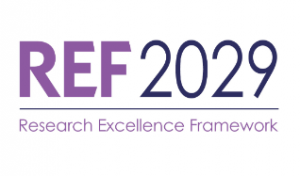 The Research Excellence Framework (REF) is the UK’s system for assessing the excellence of research in UK higher education providers and is managed by Research England.
The Research Excellence Framework (REF) is the UK’s system for assessing the excellence of research in UK higher education providers and is managed by Research England.
The outcomes from REF assessments are used to inform the allocation of around £2 billion per year of public funding for universities’ research.
Professor Welham will lead the assessment for Archaeology.
Her role as chair will involve appointing the other members of her sub-panel and developing the criteria they will use to assess submissions. She will then work with her panel on rigorous evaluating submissions against those criteria and providing advice to the main panels on the quality of research.
After her appointment was announced, Professor Welham said: “I’m honoured to be invited to serve as chair of the archaeology Sub-Panel for REF2029. This is a valuable opportunity to support our discipline and ensure that its excellence—wherever and however it is expressed—is recognised fairly and consistently.
“Archaeology in the UK is a wide-ranging and globally engaged field, and I look forward to drawing on my experience from REF2021 and the current PCE pilot to help foster a collaborative and transparent process that delivers a rigorous and trusted assessment.”
Professor Welham’s appointment was made by the four UK higher education funding bodies – Research England, Scottish Funding Council, the Commission for Tertiary Education and Research in Wales and the Department for the Economy in Northern Ireland – and the REF Main Panel Chairs.
REF Director Rebecca Fairbairn said: “I’m delighted to welcome this outstanding group to lead the REF 2029 sub-panels. Their deep expertise and broad perspectives will be central to building an assessment process that is fair, rigorous, and trusted by the research community.
“We have been working in partnership with the sector throughout this process, and I’m grateful to everyone who expressed interest – your engagement is what strengthens the credibility and value of the REF across our research landscape.”
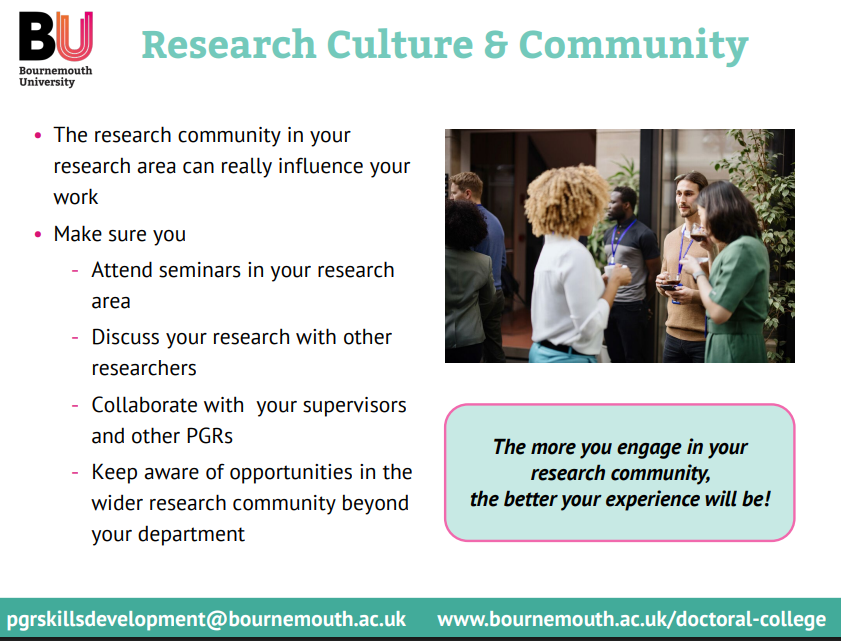 Bournemouth University’s (BU) Doctoral College aims to create a stimulating and motivating Research Culture and Community at the university. As part of this goal, the Doctoral College has funded a proposal by Anjana Paudyal, Ph.D. student in the Faculty of Health & Social Sciences (FHSS) to organise a half-day workshop on ‘Academic Writing, Publishing & Collaborating’ on 28th May.
Bournemouth University’s (BU) Doctoral College aims to create a stimulating and motivating Research Culture and Community at the university. As part of this goal, the Doctoral College has funded a proposal by Anjana Paudyal, Ph.D. student in the Faculty of Health & Social Sciences (FHSS) to organise a half-day workshop on ‘Academic Writing, Publishing & Collaborating’ on 28th May.
This event is part of BU’s Research Culture and Community workshop series. The interactive workshop, facilitated by experienced BU with as guest contributor Jillian Ireland, Professional Midwifery Advocate at University Hospitals Dorset NHS Foundation Trust. Of all midwives working in the NHS (i.e. not in academic posts), Jillian is the most widely published midwife in the South of England; Jillian is also Visiting Faculty in FHSS.

Wednesday morning’s sessions will cover academic writing, collaboration in writing, writing for practitioners’ journals, publishing identifiers and metrics, and responding to journal editors and reviewers. There will also be opportunities for Q&A and networking.
The event at Talbot Campus is now fully booked, but if you are a postgraduate student and you would like to be put on the waiting list: please email Anjana Paudyal at: apaudyal@bournemouth.ac.uk.
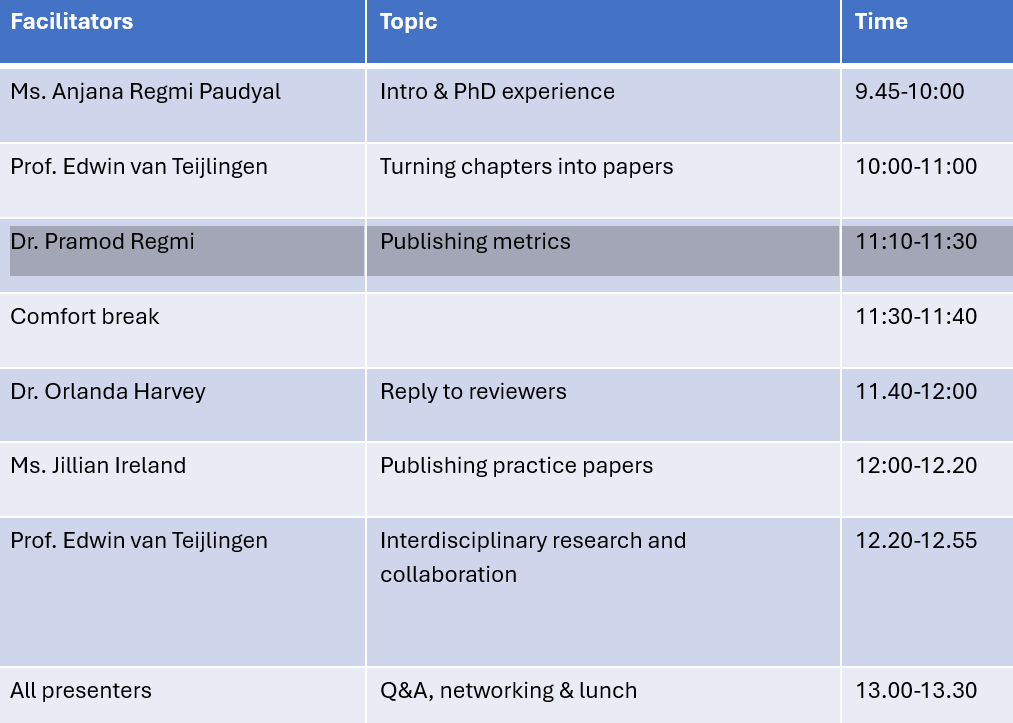
We would like to thank the Doctoral College for supporting this important event!
Dr. Orlanda Harvey & Prof. Edwin van Teijlingen
(Anjana’s Ph.D. supervisors)
 Today we had the introductory meeting of our recently funded ‘British Academy Project on Evidence-Informed Policymaking in Nepal’, the project is coordinated by the University of Huddersfield by Prof. Padam Simkhada, who is also Visiting Professor in Bournemouth University’s (BU) Faculty of Health & Social Sciences. The co-investigator at BU is Dr. Pramod Regmi (Principal Academic in International Health), with other co-applicants based at the Keele University, Canterbury Christ Church University, the University of Sheffield, the University of Chester, the Nepal Health Research Council (NHRC), Kathmandu University and the research-based charity Green Tara Nepal.
Today we had the introductory meeting of our recently funded ‘British Academy Project on Evidence-Informed Policymaking in Nepal’, the project is coordinated by the University of Huddersfield by Prof. Padam Simkhada, who is also Visiting Professor in Bournemouth University’s (BU) Faculty of Health & Social Sciences. The co-investigator at BU is Dr. Pramod Regmi (Principal Academic in International Health), with other co-applicants based at the Keele University, Canterbury Christ Church University, the University of Sheffield, the University of Chester, the Nepal Health Research Council (NHRC), Kathmandu University and the research-based charity Green Tara Nepal.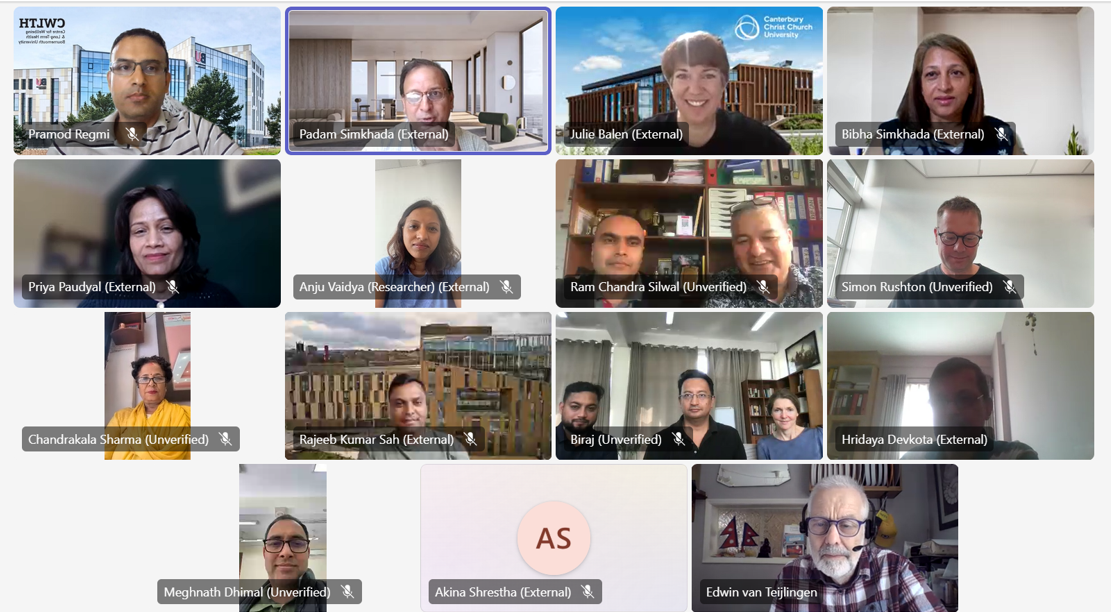
This one year grant is officially starting next month (1st June). The plans for this project were laid some time ago, and expressed in our 2022 paper ‘Nepal urgently needs a National Evidence Synthesis Centre‘ [1]. Our funded project will focus on the activities of: (1) formative research; (b) capacity building including evidence synthesis; (c) the establishment of a National Evidence Synthesis Centre; and (d) the evaluation of sustainability planning. The British Academy see this award also as providing a developmental opportunity, enabling award holders to build connections within the cohort and critically beyond that as well.

Prof. Edwin van Teijlingen
Centre for Midwifery & Women’s Health
Reference:
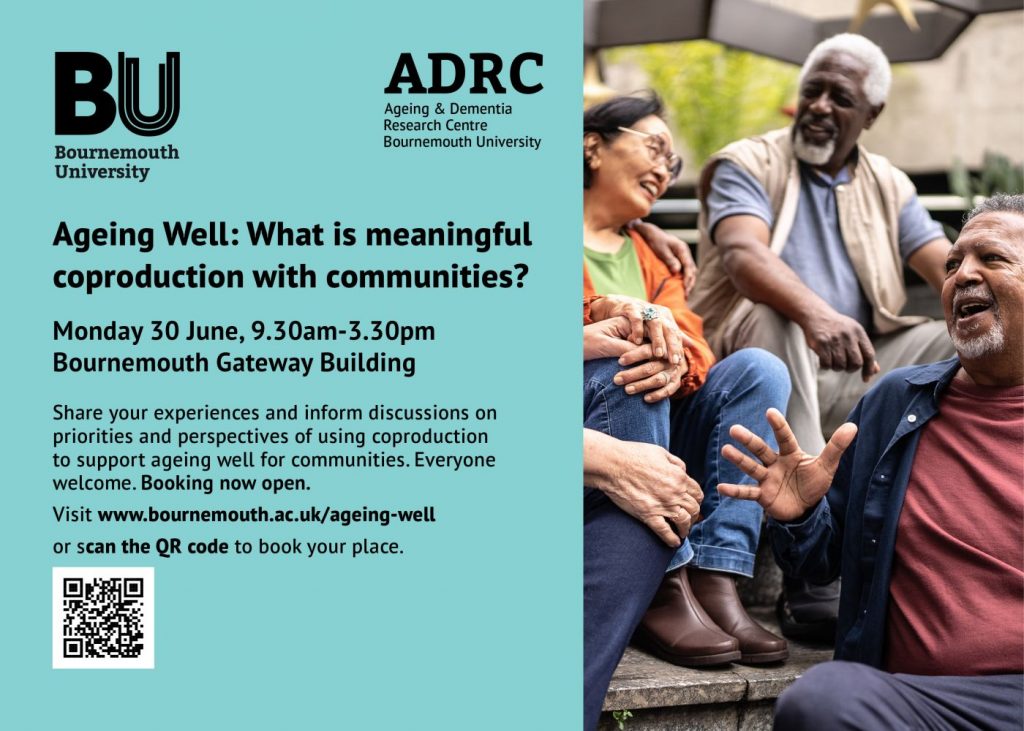
Today ResearchGate announced that the paper ‘The Interdisciplinary Research Team not the Interdisciplinarist’ [1] has been read 3,000 times. The paper, with psychologist Dr. Shanti Farrington (previously Shanker) as lead author, was written with colleagues from (a) the Faculty of Health & Social Sciences, namely Dr. Pramod Regmi and Prof. Edwin van Teijlingen; (b) the NHS, Ms. Jillian Ireland, Professional Midwifery Advocate in University Hospitals Dorset NHS Foundation Trust; (c) the University of Huddersfield, namely Prof. Padam Simkhada, who is also Visiting Professor at BU; and (d) the University of Greenwich, in the person of Dr. Sharada P. Wasti (previously based at the University of Huddersfield).
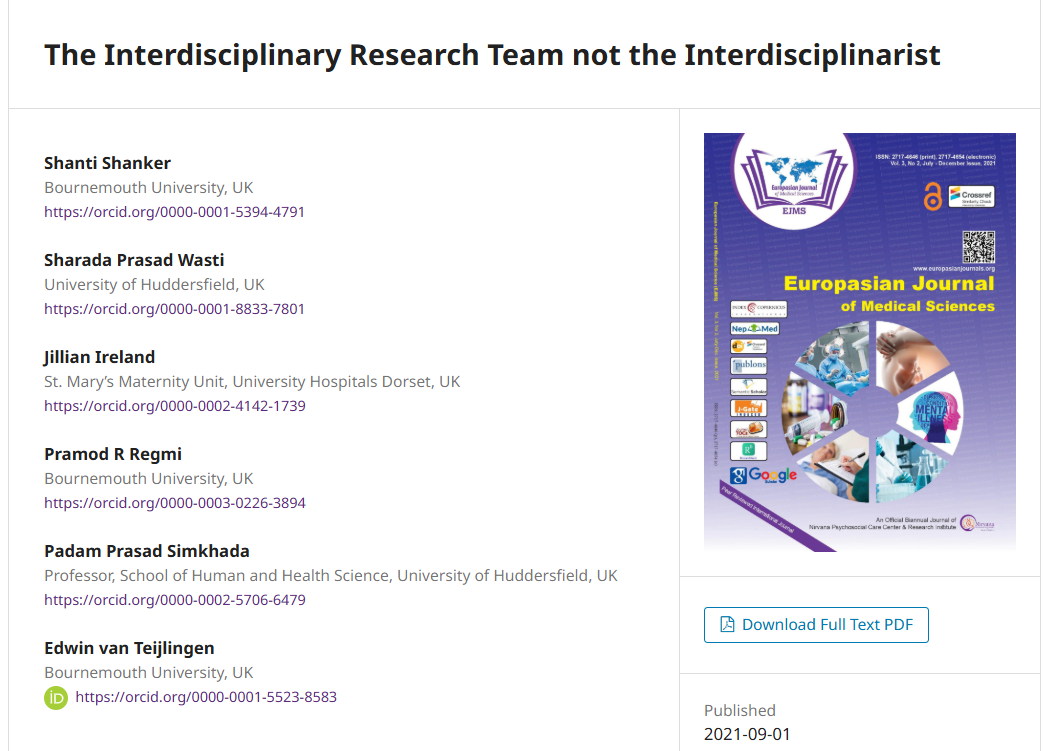 This methods paper addresses some of the pitfalls and barriers to being an interdisciplinary researcher. Being involved in interdisciplinary research is not an easy option for an individual discipline expert. It requires individual skills, ability to see beyond one’s discipline and perhaps personality characteristics such as a great team player. Interdisciplinary research may involve a mixed-methods approach underpinned by conflicting, and according to some, incommensurable research philosophies.
This methods paper addresses some of the pitfalls and barriers to being an interdisciplinary researcher. Being involved in interdisciplinary research is not an easy option for an individual discipline expert. It requires individual skills, ability to see beyond one’s discipline and perhaps personality characteristics such as a great team player. Interdisciplinary research may involve a mixed-methods approach underpinned by conflicting, and according to some, incommensurable research philosophies.
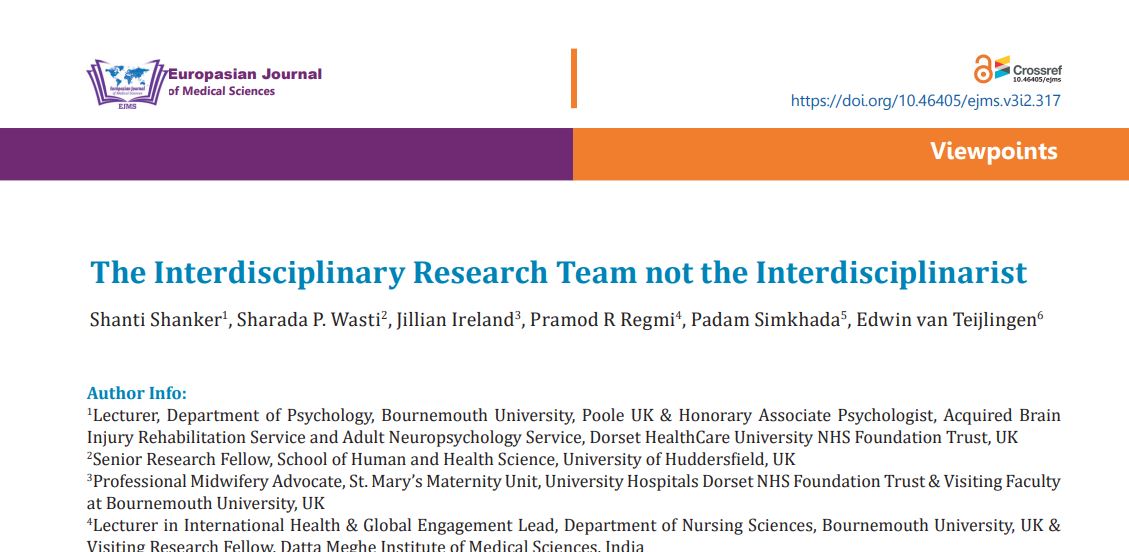 This paper on working interdisciplinary is part of a suit of academic papers on the topic written by some of the same authors [2-3]. All papers are fully open access and hence freely accessible across the globe to anyone with an internet connection.
This paper on working interdisciplinary is part of a suit of academic papers on the topic written by some of the same authors [2-3]. All papers are fully open access and hence freely accessible across the globe to anyone with an internet connection.
References:
To mark the Twentieth Anniversary of Nobel Prize-winning British author Kazuo Ishiguro’s modern classic Never Let Me Go, BU Principal Academic Dr Yugin Teo from the Faculty of Media and Communication participated in a three-part edition of the World Literature Podcast on YouTube, together with Prof Laura Colombino from the University of Genova, hosted by Dr Ivan Stacy.

World Literature Podcast logo
Part 1 of the podcast examines the cultural impact the novel has had since its publication in 2005, and its importance as a work of dystopian and science fiction: https://youtu.be/Ttsz-Vt2MbE?si=6pSX_jfu5FAwJNDq
Part 2 discusses how the novel deals with memory and how it speaks to contemporary politics: https://youtu.be/1vILMft2DkQ?si=e6EKu33CFFuMOAyZ
The final part features recommendations for further reading and predictions for Ishiguro’s next novel: https://youtu.be/C8Ox0nSeB_0?si=sQYF3Sj5xRyoEVuD
Up to £1,000 per event available to engage the public with your research in a national prestigious festival

The 23rd annual ESRC Festival of Social Science (FoSS) takes place Saturday 18 October – Saturday 8 November 2025, with the theme of ‘Our Working Lives’.
The festival is an annual UK-wide celebration of research and knowledge about people and society, organised and funded by the Economic and Social Research Council (ESRC). It provides a platform for researchers from UK universities to engage the public in a wide range of topics, from health and wellbeing to crime, equality, education, and identity, through engaging events such as exhibitions, lectures, panel debates, performances, and workshops.
The festival is free to attend, with most events open to everyone, though some may target specific groups. It offers researchers a unique opportunity to take their work beyond the university, connect with diverse audiences, and present their research in creative and accessible ways. Funding of up to £1,000 per event is available.
The national FoSS team is coordinating public engagement training with Engagement Trainer and Consultant Jamie Gallagher in June (repeated in September). Attendance at these sessions is mandatory for all event leads to attend and further details will be shared upon successful application.
We are particularly keen to receive applications from PGRs and early to mid-career researchers and encourage groups/teams to apply. If you have a supervisor, they will need to endorse your application by emailing publicengagement@bournemouth.ac.uk.
If you are considering applying, we strongly encourage you to get in touch with us directly as early as possible.
Apply to take part by completing the online application form.
Deadline for applications: 5pm FRIDAY 23 MAY 2025
You can view the slides from the Information Session here. If you weren’t able to attend, or if you would like to revisit what was covered, you can also watch the session here.
Before submitting your application, please make sure you meet both the ESRC eligibility criteria and our key requirements. This is essential for your proposal to be considered. Applications that reference academic or undergraduate audiences, or propose campus-based venues, will not be eligible. This opportunity is focused on public engagement beyond academic settings.
Festival Event Leader Pack this practical guide supports researchers in planning and delivering events for the festival. It covers the festival’s aims, event criteria, useful planning tips, audience engagement, and evaluation. It also details the funding, training, and promotional support available from the ESRC, making it a key resource for aligning events with the festival’s goals.
Please contact the Public Engagement Team to discuss your application publicengagement@bournemouth.ac.uk
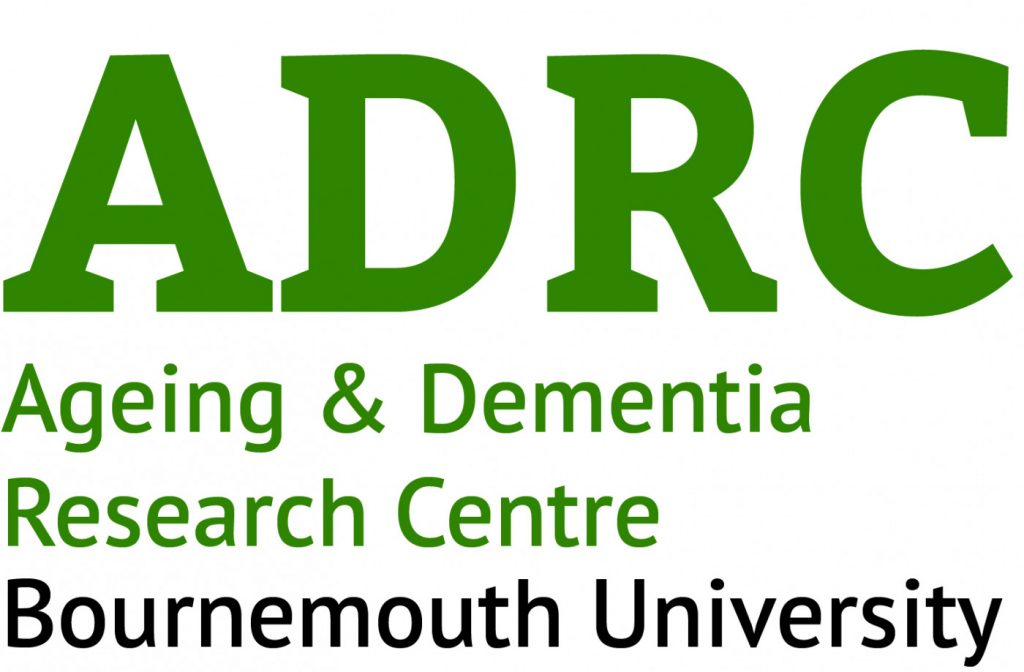
Some people in academia (and many outside it) don’t appreciate the importance of PhD supervision . An academic supervising PhD students is not merely for the educational purposes, or in other words, for the benefits of the postgraduate student. The value of postgraduate supervision lies in pushing the boundaries of knowledge, about testing new ideas, new approaches or even new methods.
Interestingly, enough it means that PhD supervision for an academic is also about developing their own ideas, expanding one’s CV, and developing one’s career. Whilst for the university it is also for the wider benefit of research for the wider society. The latter means that PhD students help improve the REF (Research Excellence Framework) scores for a university, through metrics such as number and proportion of PhD completions, but also through papers based on PhD research co-authored with staff. It always amazes me how some outsider regard PhD supervision as simply more of the same, i.e. not that different from supervising an undergraduate student.
Looking at my ow CV, some of my best papers have been co-written with PhD students, including my most cited paper on SCOPUS [1]. Moreover, as the graph of my h-index [checked SCOPUS for May 19th 2025] shows four of my top eight highest cited papers were co-authored with postgraduate students [1-4]. Papers that would not have been written without the postgraduate student conducting knowledge-advancing research! 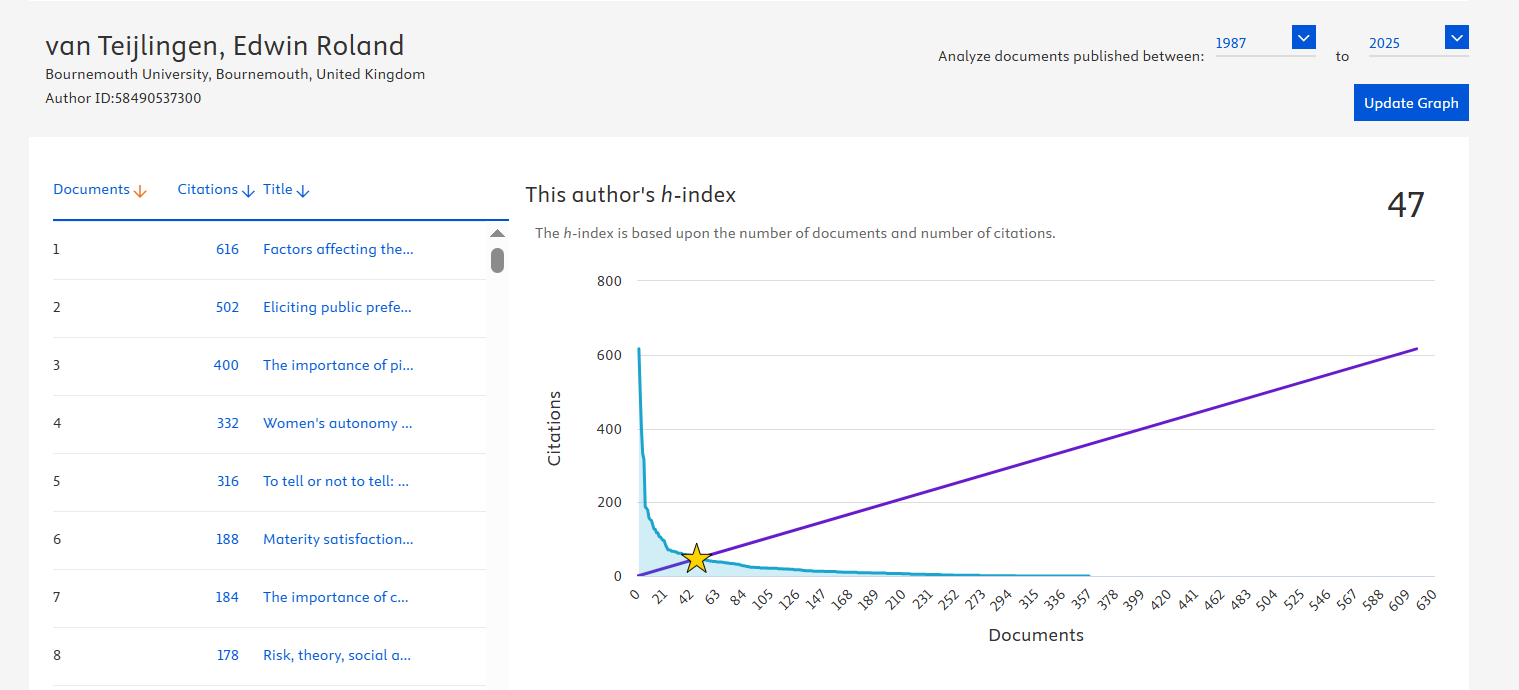
Not surprisingly, three of the four former PhD students who co-authored these highly-cited papers are now in academic positions across the UK (the fourth one has retired). These four highlighted papers are not just looking good on my CV, they are also highly ranked within their respective journals. The first paper [1] is the 28th most cited paper in the Journal of Advanced Nursing, an impressive 28th position out of 12,762 articles ever published by this international journal. Similarly, the paper ‘Women’s autonomy in decision-making for health care: Demographic study in Nepal’ [2] is the 10th most cited paper in Reproductive Health, whilst ‘ To tell or not to tell: Barriers and facilitators in family communication about genetic risk’ [3] is the 20th most article in Clinical Genetics. Last, but not least, ‘Risk, Theory, Social & Medical Models: critical analysis of the concept of risk in maternity care’ [4] is the 17th most cited article (out of 3,910) in the international journal Midwifery.
Prof. Edwin van Teijlingen
Centre for Midwifery & Women’s Health
References:
This vital initiative aims to make a tangible difference in the lives of mothers and babies by tackling the complex factors that contribute to disparities in maternity care and outcomes.
MIHERC is already actively engaged in shaping the discourse around these critical issues. The team has commenced the organisation and chairing of impactful events, including the upcoming Artificial Intelligence for Maternity and Women’s Health and Wellbeing session at the International Conference on Artificial Intelligence in Healthcare (AIiH 2025). Further details about this exciting session can be found here: https://aiih.cc/maternity-and-women-health-wellbeing/.
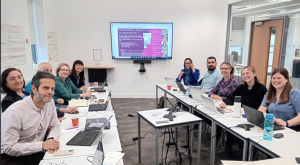
The whole team at Bournemouth University 08.01.25
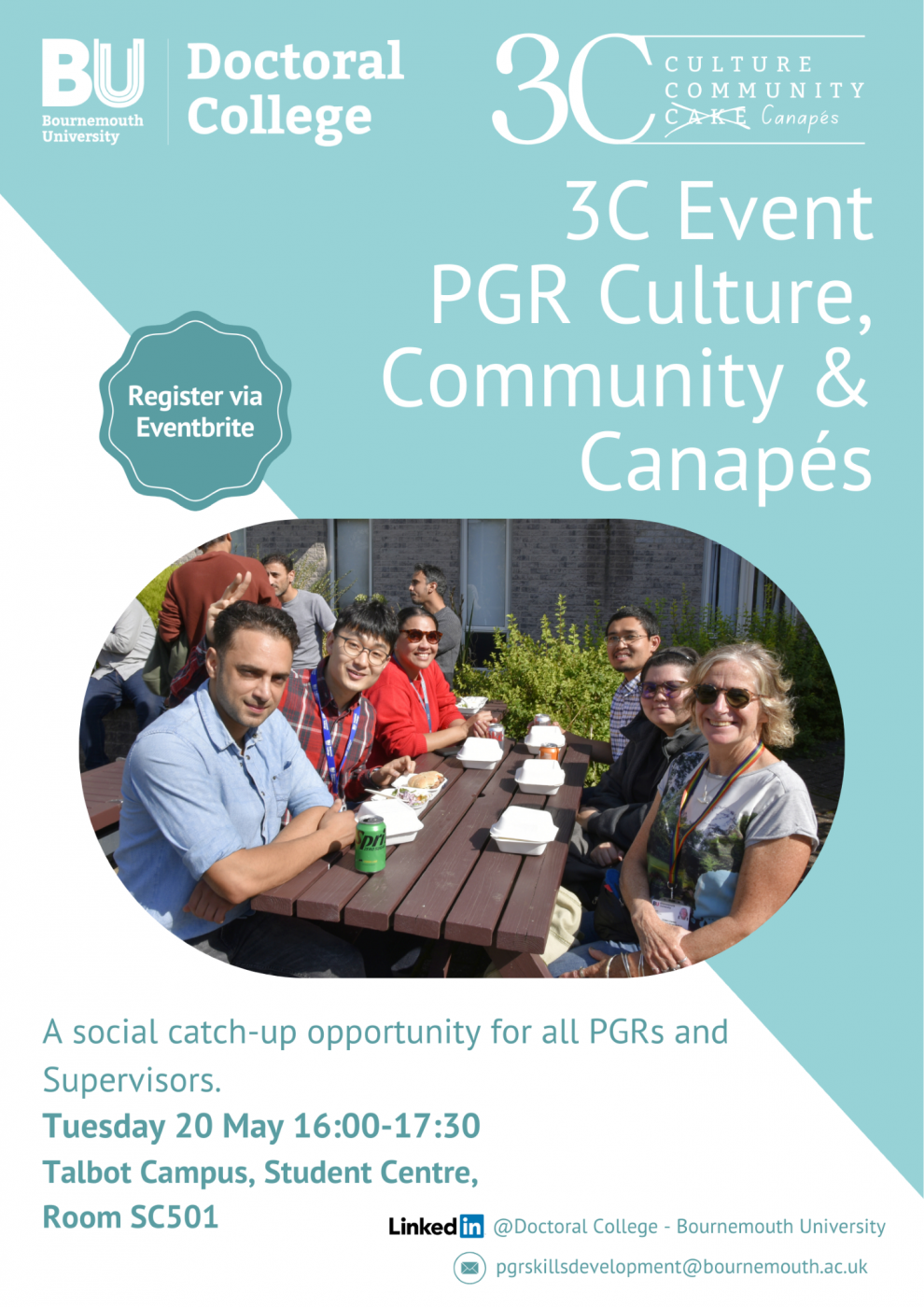
Following feedback we received at the PGR Engagement Champions meetings, we will be hosting this 3C event at the later time of 16:00-17:30.
For this 3C event, we have swapped out the usual cake for something a little fancier — canapés! Join us and enjoy delicious bites and mingle with colleagues in an informal setting.
Whether you are new to the university or a seasoned researcher, this is the perfect opportunity to:
✨ Catch up with peers
🤝 Meet new faces
🧠 Share ideas and experiences
🥂 Enjoy some tasty food and drinks!
Join us Tuesday 20 May 16:00-17:30 on the fifth floor in the Student Centre, Talbot Campus.
Let’s foster collaboration, support and networking!
Keep an eye on the Doctoral College Brightspace to stay up to date on all future 3C events.
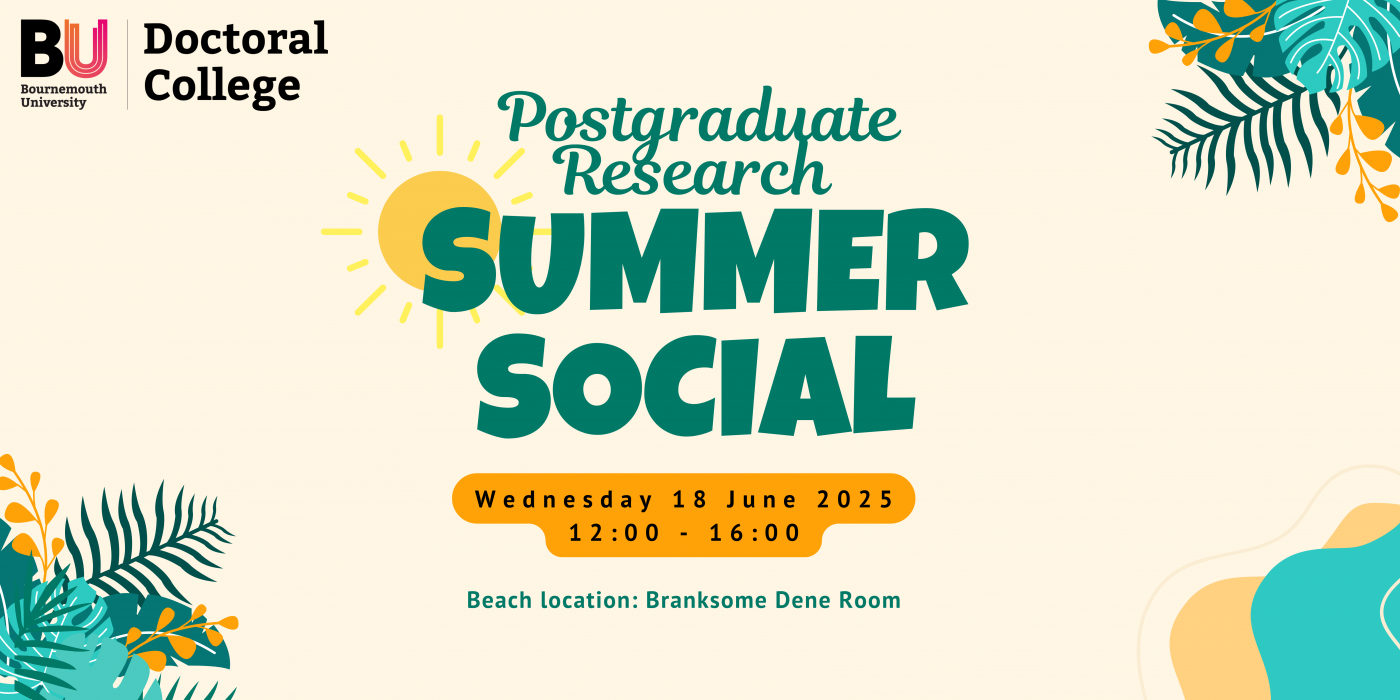
Tickets are now on sale for the Doctoral College Summer Social for the Postgraduate Research community at the delightful Branksome Dene Room. Situated in a stunning location that overlooks the beach, with amazing views of the sea to Old Harry Rocks.
We’ve booked this unique location for the exclusive use of PGRs and Supervisors for the afternoon to unwind and catch up with your fellow researchers and academics.
The Doctoral College PGR events at Branksome Dene Room are always a hit so we hope you can join us!
We are pleased to offer a Greek style lunch menu including a pita with your choice of filling (chicken souvlaki, vegetarian or vegan) served with chips, a salad bar, teas, coffees and soft drinks! You are also welcome to bring your own refreshments to enjoy.
Ticket: £5
Please note there are limited spaces available, so please book as soon as possible if you would like to attend.
If you have any questions, please do get in touch: pgrskillsdevelopment@bournemouth.ac.uk
LinkedIn: Doctoral College – Bournemouth University
X: @BUDocCollege | #BUDoctoralCollege
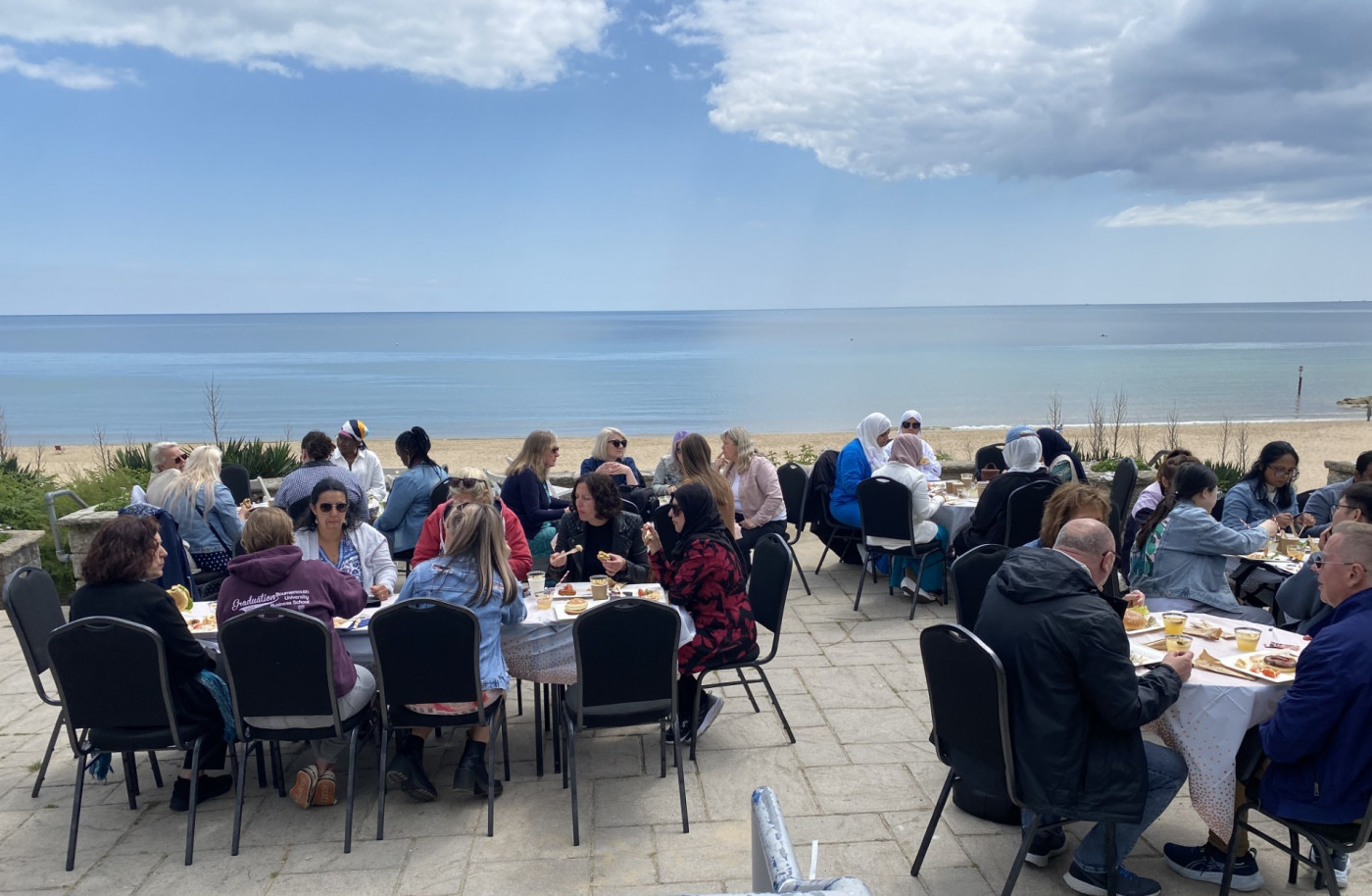
Postgraduate researchers took the spotlight at BU’s latest Research Café

We had a packed house at the BGB Café for a fascinating evening engaging conversation.
Three passionate postgraduate researchers from Bournemouth University took the stage to share their work. Each speaker gave a short talk on their research, sparking plenty of interest and questions from the audience. We covered everything from what drives our travel choices, to how nostalgia shapes our experience of video games, to the links between alcohol and eating habits in women.
Anna Preece Thesis: Disordered eating behaviours as a barrier to recovery in women with alcohol dependence | Rehabilitation and Sports Sciences (HSS)
Anna presented research on the behavioural links between food and alcohol, exploring how drinking habits and eating behaviours are connected in women. The talk highlighted the implications of these connections for mental health and well-being and discussed ways to improve support for individuals facing these challenges.
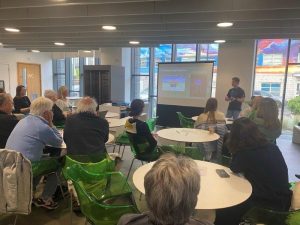
Jordan King presenting at Research Café
Jordan King Thesis: Exploring Nostalgic Experiences in Video Games | Psychology (FST)
Jordan explored the emotional power of video games, examining how they evoke memories from the past and create a sense of nostalgia. The talk focused on how digital play connects us to both personal and cultural memories, highlighting the deep emotional impact of gaming.
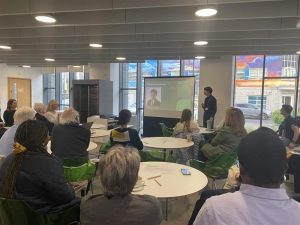
Wookjun Lee talking at Research Café
Wookjun Lee Thesis: Tourists’ use of public transportation in urban destinations: An experiential perspective | Marketing, Strategy and Innovation (BUBS)
Wookjun examined the factors influencing tourists’ travel choices, focusing on the role of public transport and how to encourage more eco-friendly travel habits. The talk highlighted strategies for promoting greener, more sustainable options for tourists.
It was a great chance to explore topics that affect our everyday lives and get a glimpse into the real-world impact of research happening at BU.
Attendees shared “It was a lovely event. A great time to learn and bond with other researchers” “It was inspiring to see the next generation of researchers sharing their work”
“I found it really interesting to hear directly from postgraduate researchers about the work happening at BU. The range of topics and the enthusiasm behind them made it a really engaging event”

Anna Preece speaking at Research Café
As one of the evening’s speakers, Anna Preece reflected on the experience
“I wanted the opportunity to share my research and hear people’s thoughts and questions about the project. It’s so important in research to hear different perspectives, especially those outside of academia, as they can challenge our thinking, or bring in new ideas… When you’re deep in the research, it’s easy to get lost in the data, so being reminded of the real-world context was invaluable… I hope attendees found the evening thought provoking and enjoyable and it helped them start to recognise the overlap between food and alcohol behaviours and consider what that might look like for themselves or someone they care about.”
Enrica Conrotto, Doctoral College Programme Manager at Bournemouth University, attended the evening and said
“a fantastic event showcasing the work of our Doctoral College PGRs. Congratulations to Anna Preece, Jordan King and Wookjun Lee for their engaging presentations, and a big thank you to the Public Engagement Team for organising the evening. An inspiring evening filled with engaging discussion”
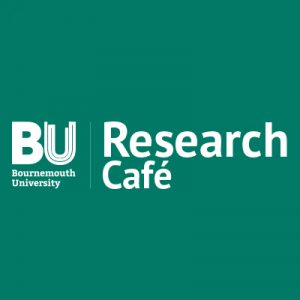 Next up in our Research Café series
Next up in our Research Café series
Tuesday 1 July, 6:30-8pm at BGB Café
More details coming soon
Contact
If you have any questions about this event or the Research Café series, please contact the Public Engagement with Research Team at publicengagement@bournemouth.ac.uk
